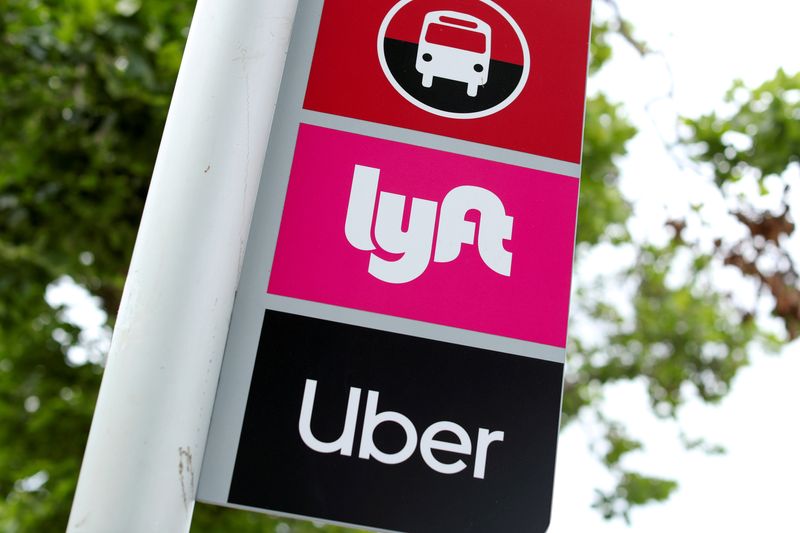By Nandita Bose
WASHINGTON (Reuters) - Rideshare and delivery companies want the Biden administration's nominee for the Department of Labor to clarify her position on an incoming worker-classification rule that could expand workers' rights, a trade group representing the companies said on Monday.
The Department of Labor in October proposed a rule that would make it more difficult for companies to treat workers as independent contractors, which would shake up ride-hailing, delivery and other industries that rely on gig workers.
The Flex (NASDAQ:FLEX) Association, which represents companies such as Uber (NYSE:UBER) and Lyft (NASDAQ:LYFT), sent a letter to Biden on Monday asking that his nominee to lead the U.S. Department of Labor, Julie Su, explain how she would implement the proposed rule in a "manner that protects independent work."
The group this month said Su's record on flexible work was "troubling" and called for a "meticulous review" of her record in the Senate confirmation process.
Democrats' narrow control of the Senate means Su's confirmation is unlikely to be impacted but the final worker classification rule is expected this year and the push to lobby against it by groups such as the Flex Association is picking up momentum.
A White House official said Su, in her role as deputy secretary of labor, has ensured that "workers receive all the rights and protections available to them under Federal law — she will continue that commitment if confirmed as Secretary of Labor."
The official, who did not wish to be named, said proper classification protects workers and ensures that they are eligible for basic things like minimum wage, overtime and unemployment insurance.
"Julie has always and will continue to defend these basic rights, consistent with Federal law," the official said.
Most federal and state labor laws, such as those requiring a minimum wage and overtime pay, only apply to a company's employees, who can cost companies up to 30% more than independent contractors, studies suggest.
Biden this month urged the U.S. Senate to quickly confirm Su and hailed his nominee for her past work to increase worker wages and expand protections.
Before joining the U.S. Department of Labor, Su was the secretary for the California Labor and Workforce Development Agency, and before then was California labor commissioner from 2011-2018.

A report on her tenure released in May 2013 found that her work resulted in a spike in enforcement activity.
There was a concerted push by many union and labor officials, as well as progressives in the Democratic Party, to get Biden to appoint Su to the role both for her familiarity with the agency and labor policy.